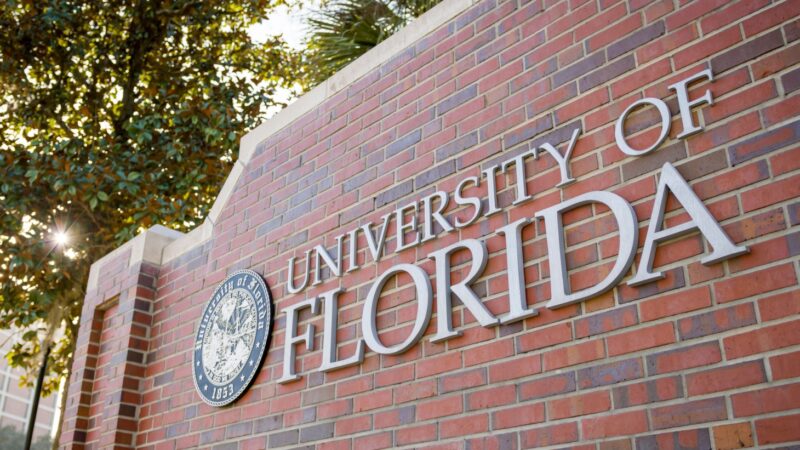Going to college isn’t just about sitting in classrooms and taking exams. You’re spending four years of your life somewhere, and honestly, you want to enjoy those years. Florida has some amazing colleges with great campus life, and I want to help you understand what makes each one special.
When I talk about campus life, I mean the whole experience. The parties, sure, but also the clubs, the sports, the food, the weather, the people you’ll meet, and whether you’ll actually feel at home there. Some schools look great on paper but feel empty when you visit. Others surprise you with how alive and exciting they are.
Let me walk you through the Florida colleges that really nail the campus life experience. These aren’t just rankings from some website. This is about where students actually seem happy.
University of Florida
UF in Gainesville is probably the first school people think of when you mention Florida colleges, and there’s good reason for that. The campus life there is genuinely vibrant. You’ve got about 35,000 undergrads, which is massive, but somehow it doesn’t feel overwhelming once you find your people.
Football is huge at UF. Like, really huge. The Swamp (that’s what they call the stadium) holds almost 90,000 people, and students pack in there for home games. Even if you’ve never cared about American football before, you’ll probably get caught up in the energy. Game days transform the entire campus and town. Everyone’s wearing orange and blue, people are grilling outside their houses, and there’s this electric feeling in the air.
But here’s the thing about UF. It’s not just about football. The campus has over 1,000 student organizations. Whatever weird interest you have, there’s probably a club for it. Anime? Got it. Salsa dancing? Yep. Underwater basket weaving? Probably that too. The involvement fair at the beginning of the year is overwhelming in a good way, with all these groups trying to recruit new members.
Greek life exists at UF, but doesn’t dominate everything like at some Southern schools. About 20% of students join fraternities or sororities. If you want that experience, it’s there. If you don’t, you won’t feel left out. Plenty of parties happen outside the Greek system, and you can have a completely full social life without ever setting foot in a frat house.
Gainesville itself is a proper college town. The whole city basically revolves around the university. You’ve got cheap food places that stay open late, coffee shops where students camp out to study, and bars near campus (once you’re old enough). The downtown area has a historic district with restaurants and shops. It’s walkable, which matters when you don’t have a car.
The weather is Florida weather, hot and humid most of the year. You’ll get used to it. Summer sessions can be brutal, but most students head home then anyway. The campus is pretty, with lots of trees and some nice old buildings mixed with newer ones. Lake Alice on campus has alligators, which sounds scary, but they mostly just sun themselves and ignore people.
Housing at UF is guaranteed for freshmen, but it gets tricky after that. Most upperclassmen move off campus into apartments, which is usually cheaper anyway. The off-campus housing market is huge, and you’ll find something that fits your budget if you start looking early enough.
One real advantage of UF’s size is the diversity of experience. You’ll meet people from all over Florida, all over America, and all over the world. The international student community is significant. You’re not going to feel like the only person from far away, and you’ll find others who understand what it’s like to be away from home.
Florida State University
FSU in Tallahassee has this reputation as a party school, and look, there’s truth to that. But it’s also a serious academic institution, and the campus life reflects that mix. Students work hard during the week and party hard on weekends. That balance appeals to a lot of people.
Football matters at FSU, too, though maybe slightly less intensely than at UF. The rivalry between these schools is real and runs deep. Students at each school will tell you theirs is better, and honestly, both have strong cases. FSU’s campus is beautiful, possibly prettier than UF’s, with lots of brick buildings and old trees.
The social scene at FSU is very active. Greek life is bigger here than at UF, with maybe 25-30% of students involved. But again, you don’t need to go Greek to have fun. The school’s location in Tallahassee means you’re in the state capital, which creates some interesting opportunities. Internships with state government are common, and there’s more of a political vibe than at other Florida schools.
Tallahassee is less of a pure college town than Gainesville. It’s an actual city with its own identity beyond FSU. Some students prefer this because it feels less like a bubble. Others wish everything revolved around campus like in Gainesville. The city has more going on culturally, with museums, music venues, and restaurants that cater to non-students, too.
One unique thing about FSU is the circus program. Yes, literally a circus. Students can learn trapeze, juggling, and other circus arts. They put on shows that are actually really impressive. Where else can you join the circus while getting your degree?
The club scene at FSU is strong, with hundreds of organizations. Intramural sports are popular, and people take them surprisingly seriously. Beach volleyball, flag football, soccer, you name it. There are also club sports that compete against other schools if you’re good enough to play, but not quite varsity level.
FSU’s connection to Panama City Beach creates this tradition of spring break trips. It’s only about an hour and a half away, so students head down there when they need a beach fix. Some people do this regularly, making weekend trips to decompress.
The campus itself sprawls quite a bit. You’ll probably want a bike or at least a skateboard to get around efficiently. The bus system works, but it isn’t always convenient. Having a car helps at FSU more than at some other schools on this list.
University of Miami
UM in Coral Gables is completely different from UF and FSU. It’s private, expensive, and smaller, with only about 12,000 undergrads. The campus life reflects that difference in basically every way.
First, the location is incredible. You’re in the Miami area with beaches nearby, amazing weather year-round, and access to everything a major city offers. The campus itself is gorgeous, with palm trees, modern buildings, and a lake in the middle where students hang out between classes.
The student body at Miami has a lot of money. There’s no delicate way to say this. Many students come from wealthy families, drive nice cars, and wear expensive clothes. If that’s your crowd, you’ll fit right in. If it’s not, you might feel out of place at times. The school is trying to increase economic diversity, but the culture still skews wealthy.
Greek life is significant at UM, but different from the Greek life at big state schools. The parties are often more exclusive and happen in nicer locations. South Beach clubs, boat parties, events at expensive restaurants. The social scene can feel glamorous in a way that’s exciting or intimidating, depending on your perspective.
Sports are interesting at UM. Football used to be absolutely dominant in the 80s and 90s, and the program is still strong. But the stadium isn’t on campus, which changes the game day experience. Basketball and baseball have passionate followings, too. The school isn’t in a major conference anymore, which some older alumni complain about, but students still support the teams.
What UM offers that’s harder to find elsewhere is access to Miami’s culture. You’ve got Latin American influence everywhere, amazing food, music scenes, and art districts. If you want to experience a truly international city while going to college, Miami delivers. The nightlife is world-class once you’re old enough, though expensive.
The beach proximity matters more than you might think. Students actually go to the beach regularly, not just once or twice a year. It’s 15-20 minutes away, and on a random Wednesday afternoon, you might decide to skip your last class and head to the ocean. That freedom and access to natural beauty improve daily life significantly.
Campus housing at UM is required for freshmen and sophomores. After that, many students move off campus, often into apartments in Coral Gables or nearby areas. Living costs are high because you’re in Miami, but the school provides some housing options that help control expenses.
One downside is that UM can feel less like a traditional college campus experience. Many students go home on weekends if they’re from South Florida. The campus doesn’t fully empty out, but it’s noticeably quieter. If you want that constant buzz of activity that you get at big state schools, UM might not provide it.
University of Central Florida
UCF is enormous. We’re talking about 60,000+ students, making it one of the largest universities in America. That size creates a campus life that’s unlike anything else in Florida. There’s always something happening, always someone to meet, always some event or activity going on.
The campus is in Orlando, which means you’re near theme parks, entertainment, and a growing tech industry. Students can get discounted passes to Disney, Universal, and other attractions. Some people work there part-time. On random weekends, you might decide to hit up Islands of Adventure or spend a day at Magic Kingdom. Having that level of entertainment accessible changes the college experience.
UCF’s campus is modern and spread out. Everything is newer because the school itself is relatively young compared to UF or FSU. You’ll definitely need a bike or car to get around efficiently. The campus has a main hub where things get busy, but there are also quieter areas where different colleges and departments cluster together.
Student organizations number in the hundreds, which is expected given the size. Whatever you’re interested in, you’ll find other people who share that interest. The challenge at UCF isn’t finding things to do but rather choosing among too many options. You could attend a different event every single night and not run out.
Football is growing at UCF. The program has gotten much better over the past decade, and students have started caring more about it. The stadium is on campus, which helps create a game-day atmosphere. Basketball also has a following, and the new arena is pretty impressive.
Greek life exists, but it represents a smaller percentage of the total student body just because the school is so huge. The absolute numbers are large, but proportionally, most students aren’t Greek. This means Greek life is one option among many rather than the center of social life.
One interesting aspect of UCF is how many students commute from home. Orlando has a huge population, and many students live with their parents to save money. This affects campus culture, making it less residential than schools where most students live on or near campus. Weekends can feel quieter as people head home.
The diversity at UCF is real and noticeable. You’ll meet students from every background, ethnicity, and country you can imagine. The international student population is substantial, and there are active cultural organizations that celebrate different heritages and traditions.
Housing at UCF works differently that at smaller schools. On-campus housing exists, but can’t accommodate anywhere near all students. Most live off campus in massive apartment complexes designed specifically for students. These complexes have their own pools, gyms, and social activities. Some people love this setup; others find it less community-focused than traditional dorms.
Florida International University
FIU in Miami offers something unique. It’s a large public university in a major international city. The student body is incredibly diverse, the majority Hispanic but with students from all over Latin America, the Caribbean, and beyond. The campus life reflects Miami’s international character.
FIU is primarily a commuter school, which shapes everything about campus life. Most students live off campus and commute in for classes. This means the campus can feel empty at certain times, particularly evenings and weekends. But it also means students are integrated into Miami life in ways that residential campus students aren’t.
The social scene happens more in Miami than on campus itself. Students meet up at restaurants, beaches, and clubs around the city. Friend groups form in classes and then hang out off campus. This is different from the traditional college experience, where everything centers on campus, and whether you prefer it depends on your personality.
What FIU does really well is embrace its diversity. The international student services are strong because so many students are international or first-generation. You won’t feel weird being from far away. In fact, being from somewhere else is almost the default at FIU.
Sports aren’t huge at FIU compared to other schools on this list. Football and basketball teams exist, but game day culture isn’t a big thing. Students who want that traditional sports-focused college experience might be disappointed. But if sports aren’t important to you, this won’t matter.
The location in Miami provides incredible access to cultural experiences. You’ve got beaches, Latin American food from every country, music scenes, art districts, and a truly international city to explore. For students who want to experience city life alongside their education, FIU offers that at public school prices.
Greek life is minimal at FIU. Some fraternities and sororities exist, but they’re not central to social life. Most socializing happens through other channels, often connected to cultural or professional organizations.
One major advantage of FIU is cost. As a public university, tuition is much more affordable than at private schools like UM. For students who want to live in Miami and experience that city but can’t afford UM’s price tag, FIU provides access.
University of South Florida
USF in Tampa doesn’t get as much attention as UF or FSU, but the campus life there is genuinely good. The school has about 35,000 undergrads, large enough to offer everything you’d want but not so huge that you feel lost.
Tampa is a great city for college students. You’ve got beaches nearby, a decent downtown, and growing job opportunities in various industries. The weather is typical of Florida, warm most of the year. The campus itself is modern and attractive, with good facilities and lots of green space.
Student organizations are plentiful at USF. The school has strong programs in health sciences, business, and engineering, and each area has its own community and culture. Social life happens both on campus and around Tampa. The school works hard to create events and activities that keep students engaged.
Greek life exists at a moderate level. It’s not overwhelming like at some SEC schools, but it’s present enough that students who want that experience can find it. Plenty of parties and social opportunities exist outside Greek life, too.
Sports are growing at USF. The football team has had some success, and students are starting to care more about it. Basketball and baseball also have followings. The school recently built better athletic facilities, showing a commitment to building a sports culture.
One cool thing about USF is its proximity to both coasts. You can hit Gulf Coast beaches in 30-40 minutes or drive to the Atlantic side in a couple of hours. Students take advantage of this, making beach trips a regular part of life.
Housing at USF works like most large Florida schools. Freshmen typically live on campus, then move to off-campus apartments after that. The housing market around campus is well-developed with plenty of options at various price points.
The diversity at USF is notable, with significant Hispanic, Black, and international student populations. The school works to make everyone feel included, and campus culture is generally welcoming.
Rollins College
Rollins in Winter Park offers something completely different from the big schools we’ve discussed. With only about 2,000 undergrads, it’s tiny compared to UF or UCF. But that size creates an intimate campus life that some students really prefer.
The campus is beautiful, located right on a lake with Spanish Mediterranean architecture. Winter Park is a wealthy suburb of Orlando, charming with nice restaurants and shops. The setting feels upscale and peaceful compared to the energy of larger campuses.
Greek life is significant at Rollins, representing maybe 30-35% of students. At a school this small, that’s a noticeable presence. The parties are smaller and more intimate than at big universities, which some people prefer and others find limiting.
Because Rollins is small, you’ll know a lot of people by name. Your professors will definitely know you. That sense of community is what small colleges offer that large universities can’t match. You’re not a number in a system; you’re an individual that people recognize and know.
Sports are Division II, so less intense than major college athletics but still competitive. Students support teams, but it’s not the defining feature of campus life like at SEC schools. Intramurals and club sports are popular for students who want to stay active without the commitment of varsity athletics.
The location near Orlando means students can access theme parks and city activities when they want a break from campus. But day-to-day life centers on campus more than at commuter schools like FIU.
Cost is the major consideration at Rollins. It’s private and expensive, with tuition comparable to UM. The school offers financial aid, but you need to evaluate whether the small college experience justifies the price for your situation.





